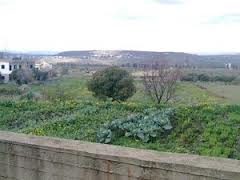 A tiny Christian village in northern Lebanon, perched on a hill overlooking Syria, Minjez is a bucolic and peaceful place by day but terrorised at night by shelling from across the border.
A tiny Christian village in northern Lebanon, perched on a hill overlooking Syria, Minjez is a bucolic and peaceful place by day but terrorised at night by shelling from across the border.
“We can’t sleep a wink,” laments Marcele Shahine, a 37-year-old mother of four. “The other night a rocket hit a house, but happily no one was there.”
“What have we got to do with what’s going on in Syria? Why are they bombing us and we paying the price?” she adds, calling for the government to do something to help the village and its 200 residents.
The answer is not difficult to find: it is very likely that anti-regime gunmen are slipping through the lush fields running down the hill from Minjez and across the Nahr al-Kabir River that serves as the border here.
The regime of Syrian President Bashar al-Assad announces on an almost daily basis that its forces have foiled attempts by “terrorists,” its term for rebels, to infiltrate the country.
The village priest, Father Esper Antoun, says: “We know that they are not targeting us, but it is said that armed men are entering Syria by way of the fields.”
Standing outside a lovely stone church just days before Pope Benedict XVI is due to visit Lebanon, Father Esper says the villagers’ biggest fear is one of “becoming the victims of someone else’s war.”
Numerous border villages in the north have been targeted by shelling in recent months, notably in the Wadi Khaled region, which has been the destination of many Syrians fleeing the killing and destruction at home.
The neighbouring region of Akkar is another target, and Issam al-Marouni, a seventy-something Christian, walks down a tiny street between the old stone houses in the village of Debbabiyeh.
Marouni said he has never abandoned his village, even during the 1975-1990 civil war, and that he never will.
“But since the uprising began in Syria, I have seen entire families leave. Our villages are becoming the transit point for armed men going to fight the Syrian regime.”
Marouni’s Syrian wife is from the village of Ghazir, just across the border, and they used to visit her family there.
“That has all changed now.”
And change is a word that causes these Christians to tremble, just as it does their fellow believers on the other side of the border.
Back in Minjez, Victor Tannous, aged 45, says: “We are worried, we are afraid of this period of uncertainty, afraid of a sectarian breakdown.”
Tannous lives in Beirut and has returned to his home town to check on his relatives after the latest shelling.
He appealed to Pope Benedict XVI, who has called for dialogue and reconciliation in the Middle East, ahead of a three-day visit to Lebanon that begins on Friday.
“We ask the pope to support us Christians, to encourage us to remain on our land, because there is great fear that chaos will come to Lebanon because of the Syrian conflict.”
“Perhaps I will sell my land in the future if the situation gets worse.”
Voicing a fear of Christians on both sides of the border, Marouni says they “could pay the price of the war in Syria, all the more because there is talk of (Islamist) extremists” emerging among the ranks of the rebels.
And as Shahine puts it, “we are a minority, and with changes in regimes, we have to watch out for our survival.”
France 24

Leave a Reply
You must be logged in to post a comment.